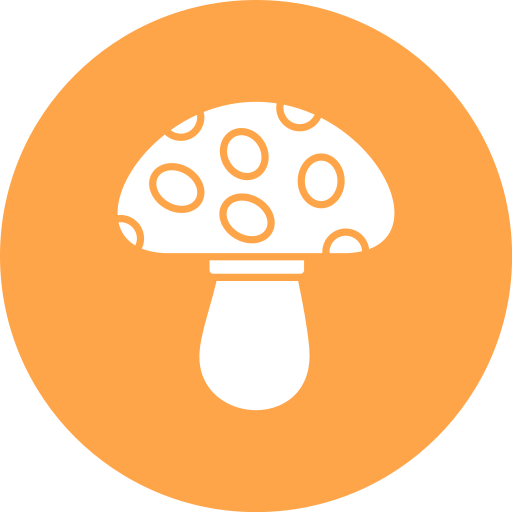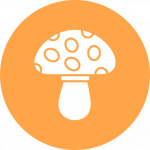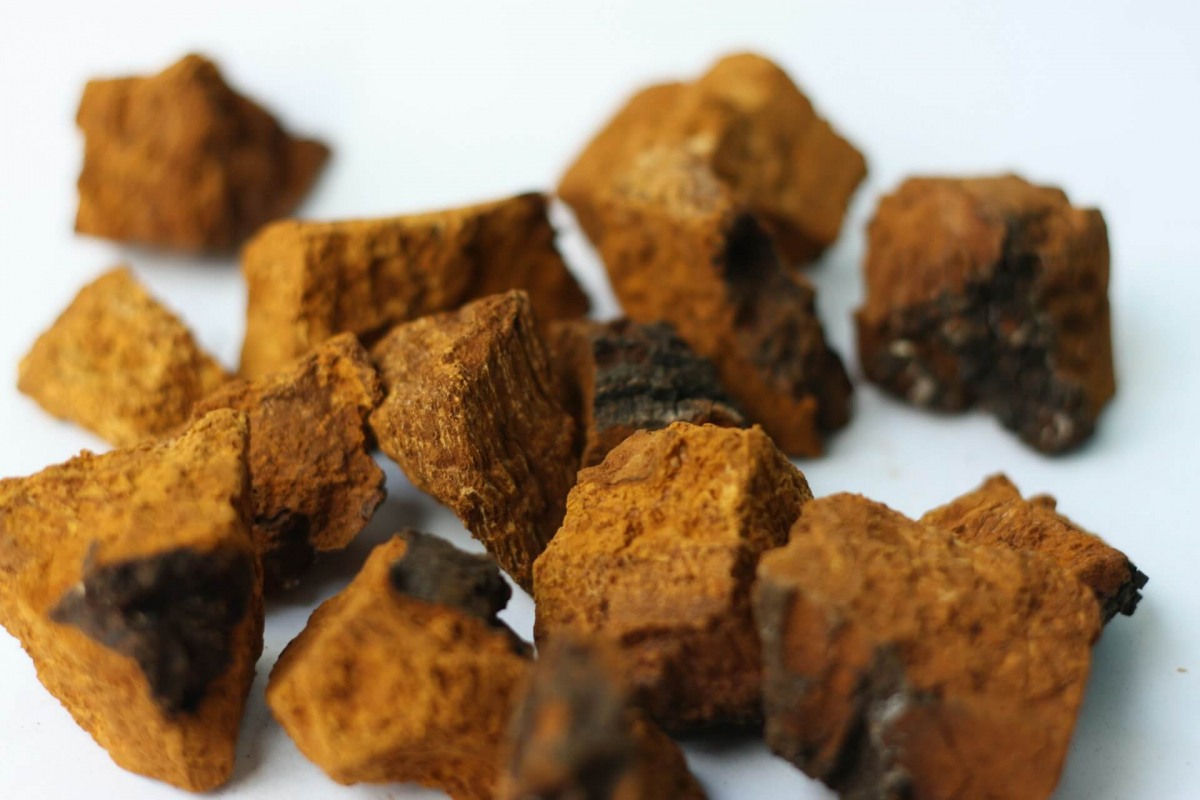In this article
The Ancient Legacy of Chaga Mushroom
Unraveling the Antioxidant Potential
Immune-Modulating Effects of Chaga Mushroom
Anti-Aging and Skin Health Benefits
Deep within the ancient forests of Siberia, North America, and other northern regions, a mysterious fungus thrives on the bark of birch trees, quietly harnessing the power of nature to bestow unparalleled health benefits upon those who seek it.
Known as Chaga mushroom (Inonotus obliquus), this extraordinary organism has been revered for centuries for its potent antioxidant properties and myriad therapeutic effects.
Join us on a journey into the world of Chaga mushroom as we uncover the secrets of its antioxidant prowess and explore the science behind its healing potential.
The Ancient Legacy of Chaga Mushroom
For generations, indigenous peoples of Siberia and other northern regions have revered Chaga mushroom as a sacred gift from the Earth—a symbol of vitality, longevity, and resilience in the face of harsh climates and challenging environments.
Traditionally brewed into teas or decoctions, Chaga has been used to support immune function, promote overall wellness, and alleviate a variety of ailments, earning it the nickname "the King of Mushrooms" [1].
Today, modern science is shedding new light on the ancient wisdom of Chaga, confirming its status as a true superfood with unparalleled antioxidant power.
Unraveling the Antioxidant Potential
At the core of Chaga mushroom's health-promoting properties lies its remarkable antioxidant capacity, which surpasses that of many other foods and supplements.
Antioxidants are compounds that neutralize harmful free radicals in the body, thereby protecting cells from oxidative damage and reducing the risk of chronic diseases such as cancer, heart disease, and neurodegenerative disorders [2].
Chaga mushroom is rich in a variety of antioxidants, including polyphenols, flavonoids, and melanin, each contributing to its potent antioxidant activity [3].
Studies have shown that Chaga extracts exhibit powerful free radical-scavenging effects, reducing oxidative stress and inflammation in the body [4].
Furthermore, Chaga's unique composition of antioxidants allows it to penetrate deep into cells and tissues, providing comprehensive protection against oxidative damage and supporting overall health and longevity.
Immune-Modulating Effects of Chaga Mushroom
In addition to its antioxidant properties, Chaga mushroom is renowned for its ability to modulate the immune system, enhancing the body's natural defense mechanisms against infections, viruses, and other pathogens.
Research has shown that Chaga contains bioactive compounds, such as beta-glucans and polysaccharides, that stimulate the production of immune cells and enhance their activity [5].
By bolstering immune function, Chaga mushroom helps the body mount a more effective response to threats, reducing the risk of infections and promoting faster recovery from illness.
Moreover, Chaga's immunomodulatory effects have potential applications in the treatment and prevention of autoimmune diseases, allergies, and inflammatory conditions [6].
With its dual action as both an antioxidant and immune booster, Chaga mushroom stands as a formidable ally in the quest for optimal health and vitality.
Anti-Aging and Skin Health Benefits
Beyond its internal health benefits, Chaga mushroom also offers remarkable anti-aging and skin health benefits when applied topically.
Rich in antioxidants and nutrients, Chaga extracts help protect the skin from environmental damage, UV radiation, and oxidative stress, preventing premature aging and promoting a youthful complexion [7].
Studies have shown that Chaga extracts exhibit anti-inflammatory and anti-aging effects on skin cells, stimulating collagen production, improving skin elasticity, and reducing the appearance of wrinkles and fine lines [8].
Additionally, Chaga's high melanin content provides natural protection against UV damage and helps maintain skin pigmentation and tone [9].
Whether consumed internally or applied externally, Chaga mushroom offers a holistic approach to skincare that nourishes and rejuvenates from the inside out.
Incorporating Chaga Mushroom Into Your Wellness Routine
With its potent antioxidant properties, immune-boosting effects, and anti-aging benefits, Chaga mushroom offers a versatile addition to any wellness routine.
Whether enjoyed as a tea, taken in supplement form, or used in skincare products, Chaga can help support overall health and vitality in myriad ways.
When selecting Chaga products, it's important to choose high-quality sources from reputable suppliers to ensure purity and potency.
Look for products that are made from wildcrafted or organically cultivated Chaga mushrooms and processed using methods that preserve the mushroom's bioactive compounds.
By incorporating Chaga mushroom into your daily regimen, you can tap into nature's antioxidant powerhouse and experience the transformative effects of this extraordinary fungus.
Conclusion
As we conclude our exploration of Chaga mushroom, we are reminded of the profound wisdom of nature and the boundless potential it holds to nourish and heal.
From its ancient legacy as a sacred remedy to its modern-day status as a superfood, Chaga continues to captivate our imagination and inspire our quest for optimal health and longevity.
With its potent antioxidant properties, immune-boosting effects, and anti-aging benefits, Chaga mushroom stands as a testament to the power of nature to support and sustain life in all its forms.
Key Takeaways:
- Chaga mushroom is revered for its potent antioxidant properties, which help protect cells from oxidative damage and reduce the risk of chronic diseases.
- Chaga mushroom contains bioactive compounds that modulate the immune system, enhancing the body's natural defense mechanisms against infections and promoting overall wellness.
- Chaga mushroom offers anti-aging and skin health benefits when applied topically, stimulating collagen production and reducing the appearance of wrinkles and fine lines.
- Incorporating Chaga mushroom into your wellness routine can support overall health and vitality, whether consumed internally or applied externally.
The name chaga comes from the Russian name of the fungus, чага, čaga, which in turn is borrowed from the word for "mushroom" in Komi, тшак, tšak, the language of the indigenous peoples in the Kama River Basin, west of the Ural Mountains. It is also known as the clinker polypore, cinder conk, black mass and birch canker polypore.
wikipedia.org
Shashkina MY, et al. (2014). A review on Chaga mushroom (Inonotus obliquus) – future perspectives. International Journal of Medicinal Mushrooms, 16(2), 205-220.
Zheng W, et al. (2009). Antioxidant and antitumor activities of extracts from wild chaga medicinal mushroom, Inonotus obliquus (higher basidiomycetes) in vitro. International Journal of Medicinal Mushrooms, 11(2), 155-164.
Youn MJ, et al. (2009). Chaga mushroom (Inonotus obliquus) induces G0/G1 arrest and apoptosis in human hepatoma HepG2 cells. World Journal of Gastroenterology, 15(37), 4749-4758.
Raudonis R, et al. (2017). Comparative analysis of chemical composition and antioxidative activity of lignicolous mushrooms collected in Lithuania. International Journal of Medicinal Mushrooms, 19(9), 795-807.
Lee IK, et al. (2012). Immunostimulating activity by polysaccharides isolated from fruiting body of Inonotus obliquus. Molecules, 17(9), 10746-10755.
Ma L , et al. (2017). Anti-inflammatory and anticancer activities of extracts and compounds from the mushroom Inonotus obliquus. Food Chemistry, 214, 268-275.
Kała K, et al. (2019). Inonotus obliquus–new source of natural antioxidants for cosmetic industry. Industrial Crops and Products, 139, 111512.
Yousaf AM, et al. (2020). Inonotus obliquus extract: insights into its anti-inflammatory, anti-angiogenic, and antiproliferative activities. Microbial Pathogenesis, 143, 104124.
Kozarski M, et al. (2014). Antioxidants of edible mushrooms. Molecules, 19(1), 91-117.



